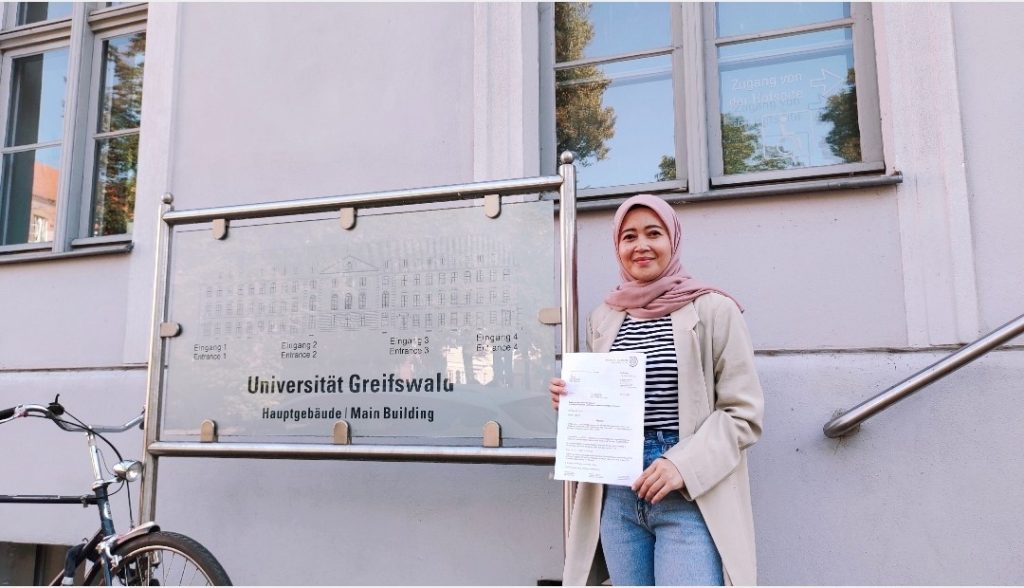Tiara Putri, a doctoral student at the Faculty of Biology, UGM, has successfully obtained her second scholarship as part of the double degree program with the University of Greifswald, Germany. This scholarship is known as the Landesgraduiertenförderungsverordnung, Mecklenburg-Vorpommern (LGFVO M-V). Every semester, the University of Greifswald awards the LGFVO M-V scholarship to young academics currently pursuing their doctoral studies, who have demonstrated outstanding academic achievements and backgrounds. The selection process and chances of receiving this scholarship are highly competitive, as only 7 doctoral students at the University of Greifswald are awarded this distinction each semester. Selection criteria include academic achievements during Bachelor’s and Master’s studies, prior research experience, the quality of the proposed doctoral research project, and recommendation letters from professors in a related research field.

In 2022, Tiara also received the Bayer Foundation Fellowship in Drug Discovery (Germany). As a recipient of both of these scholarships, Tiara is currently pursuing her doctoral double degree at the Department of Molecular Genetics and Infection Biology, University of Greifswald, under the guidance of Prof. Dr. rer. nat Sven Hammerschmidt, as well as at the Faculty of Biology, UGM, under the supervision of Prof. Budi Setiadi Daryono. Tiara’s research project also involves collaboration with the Eijkman Molecular Biology Research Center, BRIN, with co-promotor Dr. Dodi Safari, the head of the Molecular Bacteriology laboratory. Tiara’s research focuses on “Viral-Bacterial Coinfection of Streptococcus pneumoniae and Influenza A Virus in the Upper Respiratory Tract.” Based on previous studies, over 95% of morbidity and mortality resulting from past influenza pandemics worldwide were attributed to bacterial coinfections. Streptococcus pneumoniae is the most frequently isolated bacterial pathogen in these influenza pandemics. The WHO also reports that this bacterium causes up to one million child deaths per year, making it a critical issue in the global healthcare system. To further investigate this bacterial and viral coinfection, Tiara utilizes mouse lung tissue sections as a substitute for live animal testing.
According to Tiara, this method provides an excellent alternative to meet the need for animal models in both laboratory and clinical settings. Its benefits are substantial in adhering to the principles of 3R (Replacement, Reduction, and Refinement) to reduce the number of animals used in in vivo experiments. The concept of 3R is crucial in implementing point no.12 of the Sustainable Development Goals (SDGs): “to ensure sustainable consumption and production patterns”, as it emphasizes energy and resource conservation. “These lung tissue sections can maintain cellular complexity and lung architecture, providing a platform that closely resembles natural conditions for studying both bacterial and viral pathogens in the respiratory system of living organisms. Therefore, it greatly aids in reducing the use of experimental animals in both research and clinical settings,” stated Tiara.

